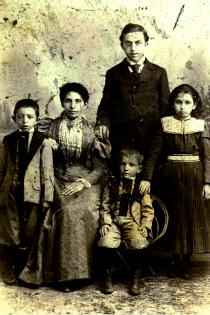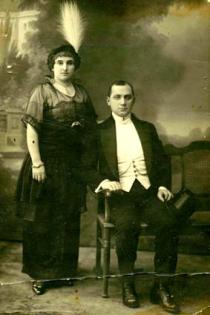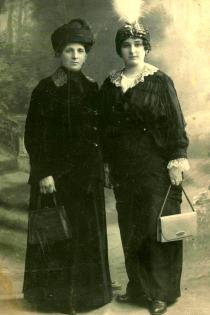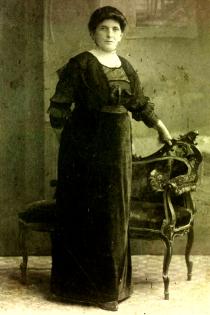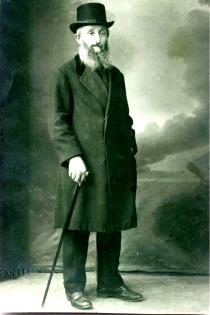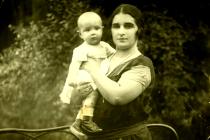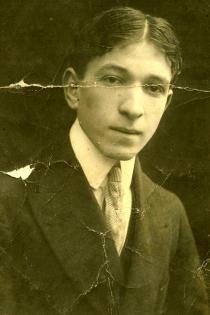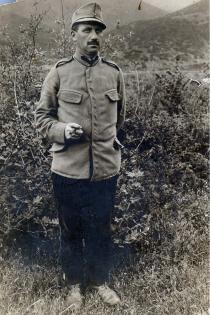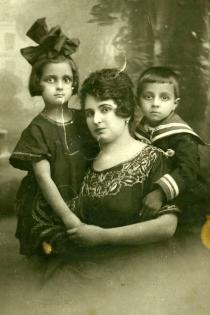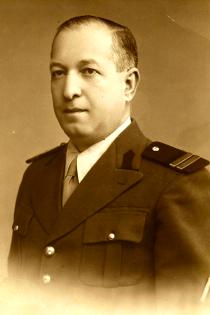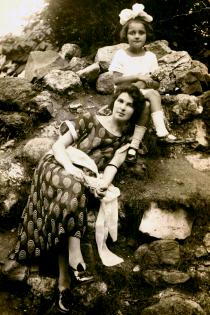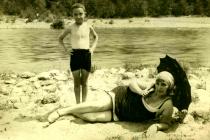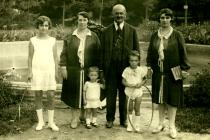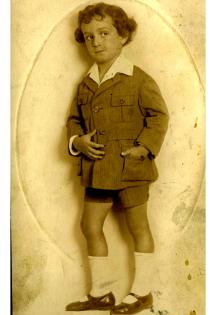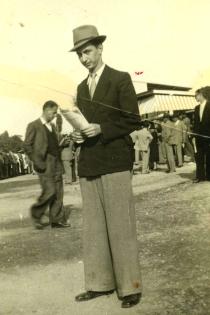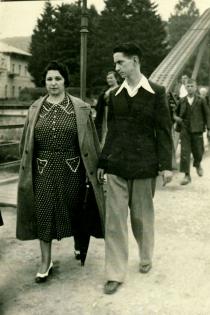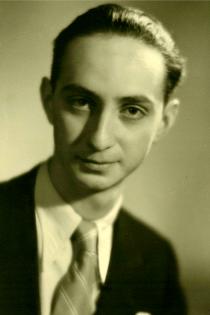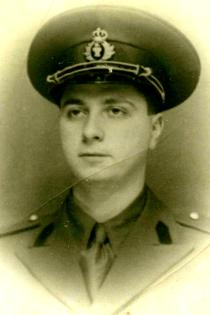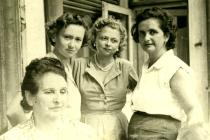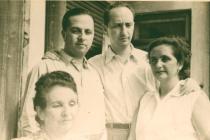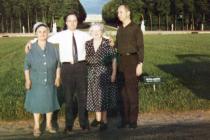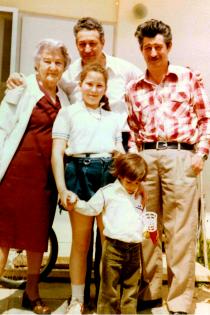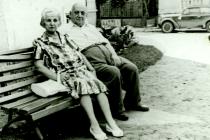The photo was taken in Bucharest, in the 1940s. This is me, Aristide Wechsler, as a college student.
I, Aristide Streja [Ed. note: He changed his name from Wechsler to Streja after World War II.], was born in Bucharest on 19th December 1922, in a house on the River Dambovita's banks, on the Unirii Embankment [Ed. note: The area was relatively close to the center of the city and had a rather large Jewish population.]. I was well looked after and educated by my parents.
I went to the Matei Basarab High School, because my brother had gone there too. [Ed. note: The Matei Basarab High School is one of the oldest and most prestigious secondary schools in Bucharest. It was located in the vicinity of the Great Synagogue and of the Jewish quarter. The children of many outstanding Jewish families went to this high school.] I studied there from the 1st year until the 6th year, when I was kicked out because I was a Jew - this happened in 1939-1940. For my final years of high school, I went to the Jewish school [Cultura B], where I had some extremely good teachers. I graduated from high school, at the Jewish school. I got my graduation exam, and then I went to the College for Jewish students, the Architecture department. [Ed. note: The College for Jewish students operated between 1941 and 1943, with official permission. It gathered the Jewish students and professors who had been banned from their faculties.] Our project professor in architecture was architect Hary Stern, to whom I owe a great deal. He taught me a lot of things.
All this time I did forced labor in three or four locations: the Cotroceni shooting range, the Central Statistics Institute, the North Railway Station (clearing the snow off the tracks), and Grivitei Ave. At Cotroceni they were building a shooting range for the army. They dug ditches and piled up all the dirt so as to form a hill. We had to dig the ditches, carry the dirt in a wheelbarrow, unload it on the hill and tread on it. They were going to shoot from ditches about 200 meters long and bullets were supposed to stop against that hill. We did nothing but digging and pushing the wheelbarrow all day long, from morning till evening. I remember it rained sometimes and we were all covered in mud. We did that for months and months. I actually think I spent one year by those ditches. All day long, I was half-buried in ditches and mud. Going back home in the evening was bliss. It was a pleasure to walk the city streets, away from the mud, and to see houses instead of ditches.

